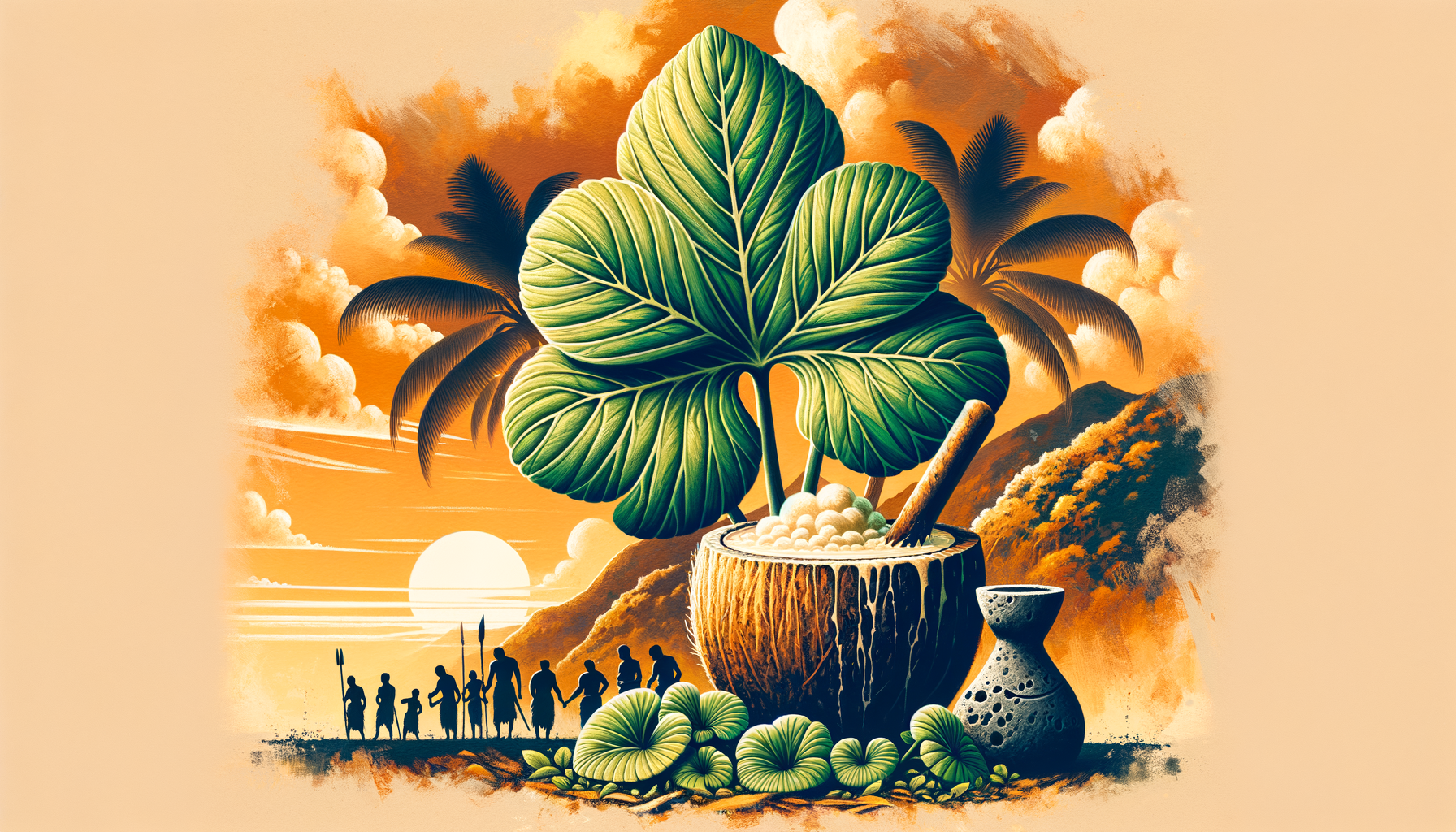Introduction
Welcome to the cool and interesting world of the sakau plant! It’s a special plant with big traditions. Even though it’s like kava, sakau has its own special charm. My name is Matt Warren, and I’m the co-founder of Psychedelic Water. Today, I’m going to tell you all about the sakau plant’s history, health benefits, and why it’s so important.
What is the Sakau Plant?
The sakau plant is a member of the pepper family and is known scientifically as Piper methysticum. It has large, heart-shaped leaves and a strong, woody stem. The most important part of the sakau plant is its root, which has many benefits. Sakau is different from other kava plants because of the unique ways it is harvested and prepared, which makes it stronger and more effective.
Historical and Cultural Significance of Sakau
Sakau comes from the tropical islands in the Pacific Ocean, especially from Pohnpei in Micronesia. For many years, sakau has been very important in Pohnpeian culture. It is often used in community rituals and social ceremonies.
The Pohnpeian Sakau Ceremony
A traditional sakau ceremony in Pohnpei is amazing to see. It starts with pounding sakau roots on a basalt stone to get the juice out. This juice is then strained through hibiscus bark and served in coconut shells. The ceremony is not just about drinking sakau; it also brings people together and shows respect, making it a key part of social life.
Health Benefits of the Sakau Plant
Some people think sakau is bad for the liver, but that’s a myth. Sakau actually has many health benefits:
- Stress Relief: Sakau helps to calm you down and reduce stress.
- Better Sleep: Drinking sakau before bed can help you sleep better.
- Social Relaxation: Sakau can make conversations more open and relaxed.
How to Prepare Sakau: Traditional and Modern Recipes
You can prepare sakau in traditional ways or try some modern recipes.
Traditional Sakau Preparation Method
Here’s how you can make sakau the traditional way:
- Pound the sakau roots using a traditional pounder.
- Put the pounded roots in a bowl and add water.
- Strain the mixture through a cloth to get the juice.
- Serve in small coconut shells or cups.
Modern Sakau Recipes
Sakau Smoothie
Blend sakau juice with banana, coconut milk, and honey to make a yummy smoothie.
Sakau Iced Tea
Mix sakau juice with iced green tea and a squeeze of lemon for a refreshing drink.
Sakau Cocktail
Mix sakau juice with ginger ale or tonic water and add a lime wedge for a tasty cocktail.
Personal Experience with Sakau
When I first tried sakau in Pohnpei, it was a memorable experience. The local people were very kind, and the sakau made me feel relaxed. Sakau can help you unwind after a long day and build strong social bonds.
Best Sakau Products to Buy
If you want to try sakau, here are some good products:
- Sakau Powder: Great for making your own sakau at home.
- Sakau Teas: Easy to brew.
- Ready-to-Drink Sakau Beverages: Convenient for busy people.
Expert Opinions on Sakau
Experts say sakau is much more than just a plant; it’s a cultural treasure. It helps keep communities together and well.
Join Sakau Events & Meetups
If you want to learn more about sakau, check out these events:
- Upcoming Events: Look for sakau tasting events and workshops.
- Past Highlights: Cultural festivals celebrating sakau have been really fun. Make sure to join the next one!
Conclusion
The sakau plant is not just a drink; it’s a way to experience a rich culture. Ready to try sakau yourself? Join our KavaKist community, share your experiences, and celebrate this amazing plant with us.
Additional Resources
Learn more about sakau through these resources:
- Books & Articles: "Sakau: The Cultural Drink of Pohnpei" is a great book.
- Online Forums: Join sakau fans on forums like Reddit and special kava communities.
Enjoy the rich history and benefits of sakau with every sip. Cheers!

Leave a Reply